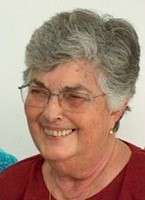2015 Tagger Prize | 2018 Agmon Award
Mathilde Tagger Prize

Mathilde Tagger ז”ל (Tangiers, 1933-Jerusalem, 2014) was a pre-eminent scholar of Sephardic genealogy and author of numerous publications, particularly in the fields of Sephardic given names and Bulgarian Jewish surnames. She was a founding member of IIJG and served for many years on the Institute’s Executive Committee.
The daughter of teachers at Alliance Israélite Universelle Schools in Morocco, she held an MA degree in Library and Information Sciences from Hebrew University of Jerusalem. She was Chief Librarian of the Atmospheric Sciences Department at the Hebrew University (1958–1978) and the Scientific Advisor for Special Information Projects at the Ministry of Science and Development (1980–1990). On retirement, she devoted herself wholly to Sephardic genealogical research.
In 2015 IIJG offered a prize in her name for original, unpublished research in Jewish genealogy and in January 2016 announced that the recipients were:
- Dr. Kamila Klauzińska(Poland) for her 2012 doctoral dissertation on “Modern Genealogy of Polish Jews” – 1st prize of $5,000.
- Judy Golan(Israel) for her paper entitled “Reading between the Lines: Mining Jewish History through Extraction of Polish Archival Data” – 2nd prize of $2,000.
Dr. Klauzińska’s thesis (in Polish) is based on extensive genealogical research at the macro- and micro- levels. It illuminates the interdisciplinary nature of Jewish genealogy and makes the academic case for teaching the subject at the university level. Part of her commendation reads: “[This work] certainly should be useful to anyone interested in Polish Jewish genealogy because of the rich data it brings together.”
Click here for the abstract of the Klauzinska dissertation.
Click here for an English final report of the Klauzinska dissertation.
~~~~~
Ms. Golan’s commendation notes that: “[After making] her contribution to understanding [Jewish] marriage patterns [in Poland], her findings can help make sense of otherwise inexplicable genealogical findings and explain why ancestors chose the mates that they did. In short – this is a contribution both to history and genealogical explication.”
Click here for the abstract of the Golan paper.
Click here for the final report of the Golan paper.